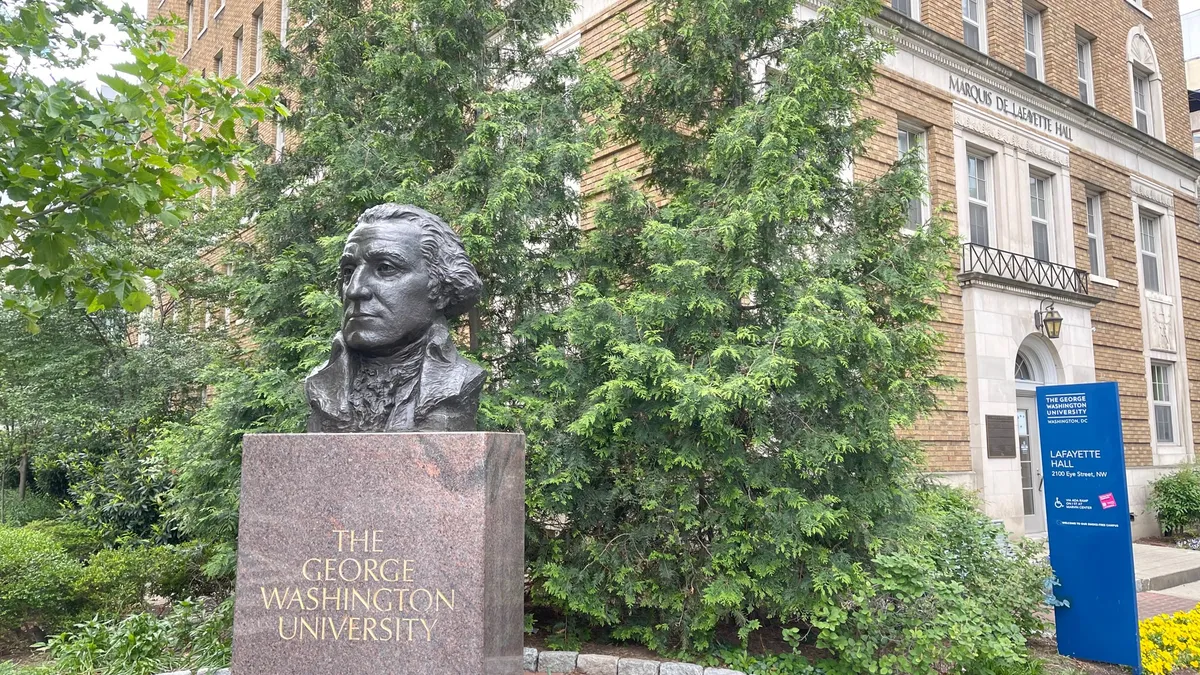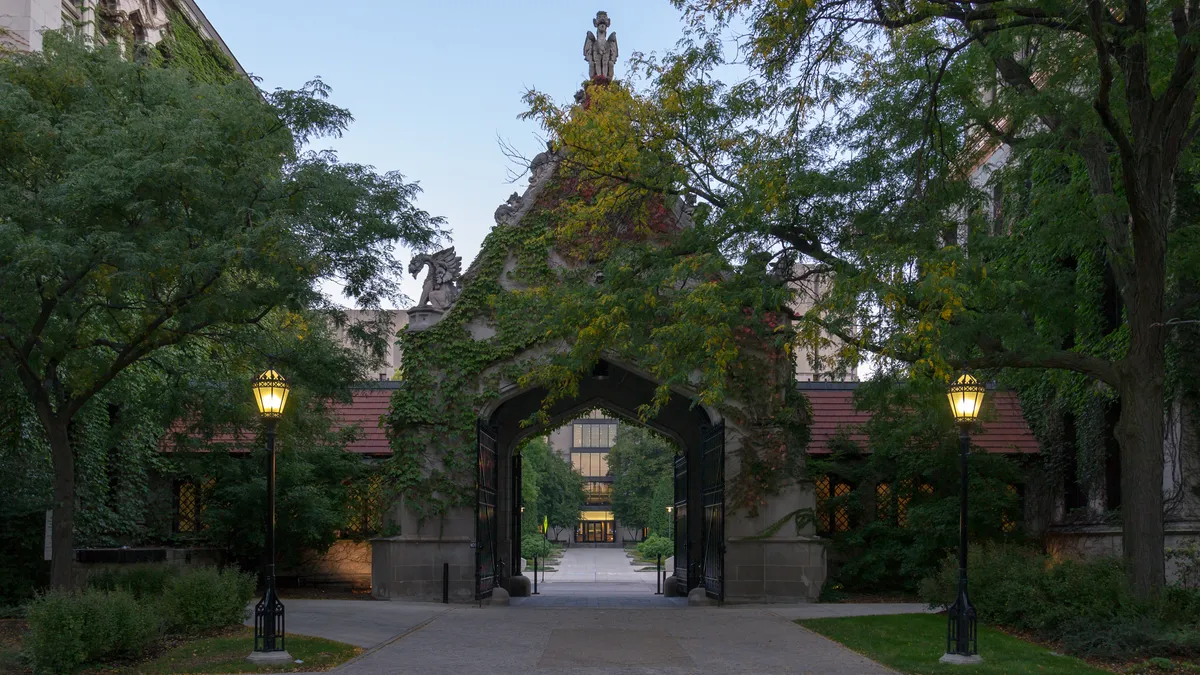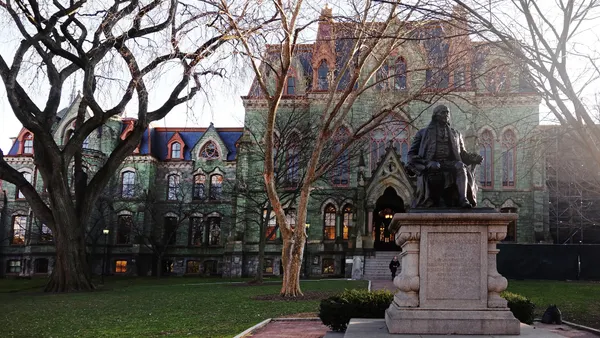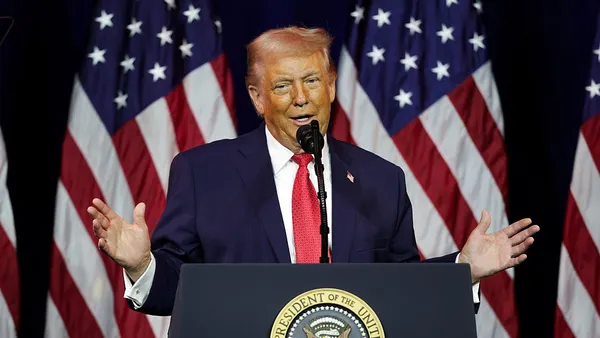Dive Brief:
- Faced with an “unsustainable compounding deficit,” George Washington University is freezing hiring and could lay off employees down the road, the private Washington, D.C.-based institution said in a community message Tuesday.
- The hiring freeze applies to positions funded directly by the university and is set to last at least until Oct. 1. GWU also plans to review large procurement contracts, cut back on capital spending, and tighten budgets for travel, events and entertainment, among other moves.
- Despite earlier budget-tightening measures, senior university leaders said the outlook for the upcoming fiscal year has deteriorated since April. Officials plan to present a full fiscal 2026 budget to the university’s governing board in early September.
Dive Insight:
In their announcement, university President Ellen Granberg, Interim Provost John Lach and other officials cited political, economic and demographic challenges that are exacerbating GWU’s budget pressures.
On the policy front, they pointed to the Trump administration’s ongoing efforts to limit funding for indirect research costs, such as facilities, utilities and other overhead, to federal grant awardees. While federal courts have paused or struck down those moves at four federal agencies, they have created deep financial uncertainty for many universities.
The officials also pointed to “significant changes in the overall federal research landscape,” which has big implications for the university, a major nexus for federal grants. In fiscal 2024, GWU spent a total of $471.6 million in federal grants from a wide array of federal agencies and other grantors.
Along with research funding disruption, officials pointed to a slowdown in visa processing and President Donald Trump's recent move to ban or restrict travel from 19 countries. They described these changes as "constraints on our ability to enroll international students." In 2024, GWU enrolled 3,661 international students, according to institutional data.
Moreover, the university, with its deep ties to the D.C. area, is beginning to see domestic enrollment impacts from the Trump administration’s massive slashes to federal agency workforces, as well as general financial uncertainty among American consumers.
Even more pressure on graduate enrollment could come amid the elimination of Grad PLUS loans and caps on total student borrowing, brought on by the massive budget bill passed by Republicans and signed by Trump last week.
But GWU had financial challenges before Trump took office. As Granberg, Lach and other officials noted, revenue growth averaged 6.1% from fiscal 2022 through 2024 while expenses grew 6.8%.
“While this difference might not seem significant, its cumulative effect is an unsustainable compounding deficit,” they said.
That budget gap resulted from pre-Trump structural challenges in the higher education world, including rising costs and declining master’s degree enrollments.
Between 2018 and 2023, GWU’s total fall graduate student enrollment declined 9.2% to 14,181 students, according to federal data. The officials pointed to declines in international student enrollment, which began at the university before Trump’s newest travel bans and “at this point can no longer be viewed as temporary.”
University leaders in April announced a pause on merit-based salary increases and a 3% budget cut across units. But the challenges have only deepened since then.
Now officials aim for deeper budget cuts for fiscal 2026, “which we recognize will likely lead to some reductions in the number of staff and certain faculty positions, a step we have tried to avoid but cannot any longer,” they said Tuesday.













